Ford’s recent partnership with Volkswagen has sparked excitement in the automotive world, hinting at the possible revival of the beloved Fiesta as an electric vehicle (EV). This collaboration comes as Ford seeks to enhance its electric vehicle lineup in Europe, where it has faced declining sales and market share.
Key Takeaways
- Ford’s partnership with Volkswagen may lead to the revival of the Fiesta as an electric vehicle.
- The collaboration aims to leverage Volkswagen’s MEB platform for new EV models.
- Ford’s sales in Europe have significantly dropped, prompting the need for innovative solutions.
- The Fiesta, once a top-selling small car, was discontinued in 2023, but could return in a new electric form.
The Decline of Ford in Europe
Ford has struggled in the European market, with sales dropping to just 426,307 vehicles in 2024, a significant decline from previous years. The company’s market share has dwindled to 3.3%, and it has announced the discontinuation of several models, including the Mondeo and Fiesta. The Focus is also set to be phased out later this year.
To combat these challenges, Ford is focusing on expanding its electric vehicle offerings, particularly through its collaboration with Volkswagen. This partnership has already produced the Explorer and Capri, both of which are based on Volkswagen’s electric platforms.
The Potential Revival of the Fiesta
The Ford Fiesta, a staple in the small car segment for decades, was retired in 2023. However, with the growing demand for electric vehicles, there is speculation that the Fiesta could make a comeback as an EV. Volkswagen’s MEB Entry platform, designed for smaller electric cars, could serve as the foundation for a new Fiesta model.
- Size Compatibility: The Fiesta’s dimensions are similar to those of Volkswagen’s upcoming ID.2, making it a suitable candidate for re-engineering.
- Driving Range: An electric Fiesta could offer a driving range of up to 280 miles, appealing to urban drivers looking for efficient city cars.
- Design Distinction: While it would share a platform with Volkswagen, the Fiesta would likely feature a unique Ford design, differentiating it from its German counterpart.
The Future of Ford’s Electric Lineup
Ford is not only looking to revive the Fiesta but is also investing heavily in electric vehicle technology. The Cologne plant, which was upgraded with a $2 billion investment, is now Ford’s first carbon-neutral vehicle assembly facility. This facility is already producing electric versions of other classic nameplates, indicating Ford’s commitment to electrification.
- Upcoming Models: The Puma Gen-E has already been launched, showcasing Ford’s new electric design language. Future models may include a mid-size electric pickup, expected in 2027.
- Market Strategy: Ford’s strategy appears to be shifting towards larger vehicles, but the potential revival of the Fiesta suggests a renewed interest in compact cars, especially in the European market.
Conclusion
The collaboration between Ford and Volkswagen represents a significant opportunity for both companies to innovate and adapt to the rapidly changing automotive landscape. The potential return of the Fiesta as an electric vehicle could not only revive a classic nameplate but also help Ford regain its footing in the competitive European market. As both companies continue to explore new technologies and models, the future of the Fiesta remains an exciting prospect for car enthusiasts and consumers alike.
FAQ: Potential Revival of the Ford Fiesta as an Electric Vehicle
1. What is Ford’s recent partnership with Volkswagen about?
Ford’s recent partnership with Volkswagen focuses on leveraging Volkswagen’s electric vehicle platforms, notably the Modular Electric Drive Matrix (MEB), to expand Ford’s electric vehicle lineup in Europe. This collaboration could lead to new EV models, potentially including the revival of the Ford Fiesta.
2. Why might Ford revive the Fiesta as an electric vehicle?
Ford may revive the Fiesta as an electric vehicle to regain market share and boost sales in Europe, where it has experienced significant declines. The Fiesta, previously popular in the small car segment, is considered a strong candidate for revival using Volkswagen’s MEB Entry platform, tailored for compact EVs.
3. Why was the Ford Fiesta originally discontinued?
The Fiesta was discontinued in 2023 due to shifting consumer preferences and declining sales of small internal combustion engine vehicles. Ford was streamlining its European lineup, focusing more on larger and more profitable vehicle segments.
4. How suitable is Volkswagen’s MEB Entry platform for a new Fiesta EV?
Volkswagen’s MEB Entry platform is highly suitable for a new Fiesta EV. Its dimensions closely match the Fiesta’s size, making it an ideal foundation for creating an efficient and compact electric vehicle with potential driving ranges of up to 280 miles.
5. What unique features could an electric Fiesta offer compared to Volkswagen’s EV models?
An electric Fiesta would likely feature distinctive Ford design elements, differentiating it from Volkswagen’s vehicles built on the same platform. Unique styling, brand-specific technology, and tailored features could help it stand out in the compact EV market.
6. What is Ford doing to advance its overall electric vehicle strategy?
Ford has invested heavily in electric vehicle technology, notably upgrading its Cologne manufacturing plant with a $2 billion investment to become Ford’s first carbon-neutral vehicle assembly facility. The company is expanding its EV lineup with models like the Puma Gen-E and an anticipated mid-size electric pickup by 2027.
7. How significant is the European market for Ford’s electric vehicle strategy?
The European market is critical for Ford’s electric vehicle strategy due to stringent emissions regulations and increasing consumer demand for EVs. The potential revival of the Fiesta and investment in new electric models reflect Ford’s commitment to recapturing market share in this region.
8. What other electric vehicles has Ford produced through its partnership with Volkswagen?
Through its collaboration with Volkswagen, Ford has already launched electric models such as the Explorer and Capri, built using Volkswagen’s electric platforms. These models demonstrate Ford’s strategic shift towards leveraging partnerships for efficient EV development.

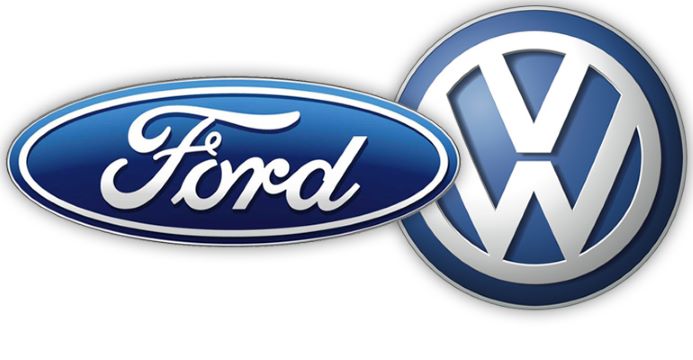
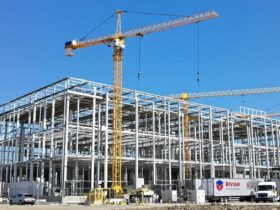
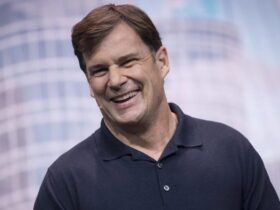
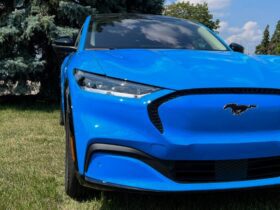
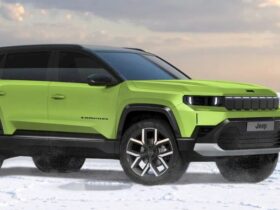
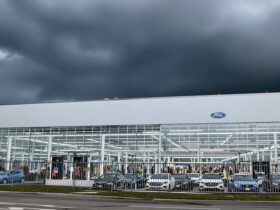
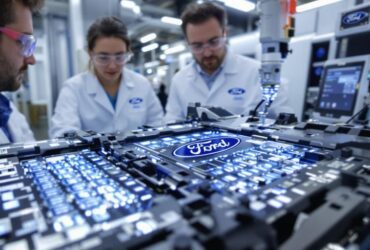
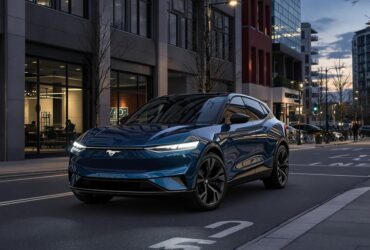

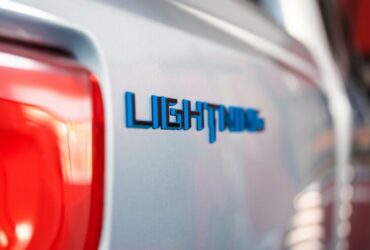
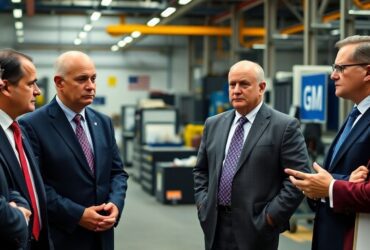
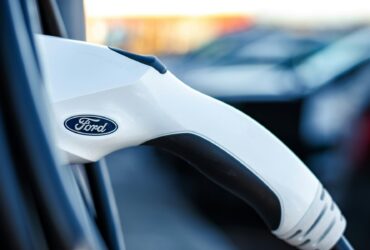
Leave a Reply